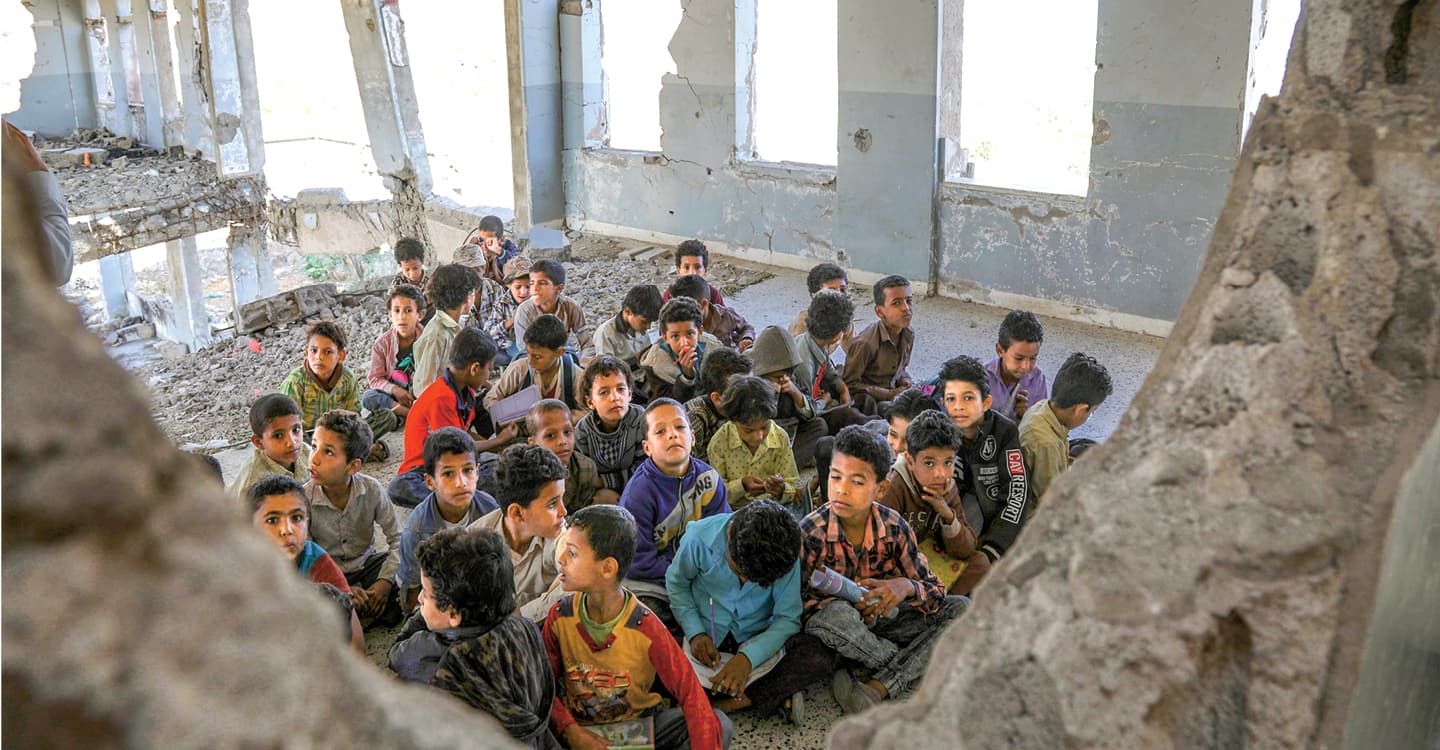Jim McMahon
In war-torn Yemen, it’s difficult for children to get an education. Since neighboring Saudi Arabia began its military assault on the country almost five years ago to try to defeat Yemen’s Houthi rebels and restore a more Saudi-friendly government, thousands of schools have been destroyed. These students are pictured in a classroom that was damaged during a recent airstrike. (Lessons have been moved to another section of the school, but this photo was taken to draw attention to the need for repairs.) One in five schools in Yemen can no longer be used as a direct result of the conflict, according to Unicef (United Nations Children’s Fund). To make matters worse, teachers’ salaries haven’t been paid in more than two years. Now 2 million Yemeni children aren’t going to school, and the situation will likely grow worse as the violence—which has already killed 100,000 Yemenis—continues. Experts worry that kids who aren’t in school may be forced to join the fighting. That’s why they’re calling on the international community to help the teachers. “It is unacceptable,” says Sara Beysolow Nyanti, a Unicef representative in Yemen, “that education and other fundamental child rights are out of reach for children in Yemen all because of man-made factors.”

